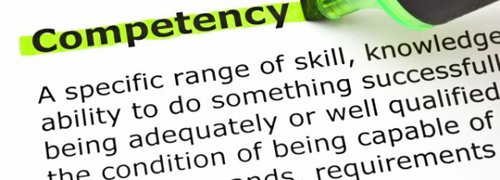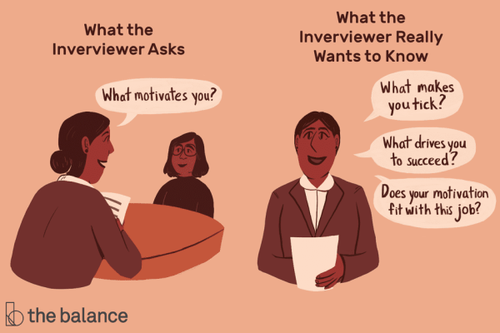
Motivation & Competency Interview questions - what's the difference?
Congratulations, you got the interview - but what’s next?! Being properly prepared for a professional interview is absolutely key to impressing your would-be employer. One simple and effective way of doing this is to make yourself aware of the different kinds of questions you’ll be facing, and working out ahead of time exactly how you intend to answer them. You then feel confident and prepared when the moment comes and you're under pressure.
You might have heard the terms “competency” and “motivation” before in reference to types of interview questions. They describe the different tools employers use to assess how well-suited for the role a candidate might be.
Consider the things that the interviewer needs to know: can this person actually do this job? What experience do they have of successfully doing similar jobs in the past? And will they fit in at this company? How much do they really want to work here?! Competency and motivation questions are used by employers to build a fuller picture of the person sitting in front of them.
Competency questions
These are used when a potential employer wants to know if you have the skills and knowledge required to perform the role. Simply put: can you do the job? To successfully answer these questions, you need to be able to demonstrate what skills you would bring to the company and prove (by using an appropriate example) that you know how best to use your skills to complete tasks.

You’ve probably heard questions like this before, and a good way to spot them is that they often start like this
-
“Tell me about a time when…”
-
“Can you give me an example of…”
-
“Have you ever been in a situation where…”
These questions are inviting you to tell a story - so have one or two ready! It might help you to use the STAR technique [ more information here ] to help construct your fascinating anecdote, and be sure to pick a task you completed where you are able to show that you had a positive impact (and avoid criticising others or complaining about the work!).
You might need to be ready to adapt the story to the question, so whether the interviewer wants to see evidence of strong communication, teamwork, leadership, or customer service, you’ll be ready to go.
Bear in mind that you don't want to have answers so rehearsed that you can only use them for a particular scenario, but you do want examples which will highlight a multitude of positive qualities about yourself and which will help you stand out.
Motivation questions
These are intended to give the hiring manager a sense of who you are, what you enjoy, and what you consider success or failure - quite literally, what motivates you and does that fit with the company culture?

When answering these questions, you want to be personal and honest, and to connect with the role or company for which you are being interviewed. You want to think about previous roles, tasks, or environments in which you have enjoyed what you were doing and which provide you with clear examples to support your answer: whether this be work, studies, or even volunteering experience.
Most importantly, you want to keep it relevant and show that you will be a good fit for the role. Don't talk about how much you love interacting with people if it's a data analysis job where you'll be working independently all of the time!
Examples of common motivation questions include:
-
“What type of work environment do you work best in?”
-
“What is the best job you've ever had?”
-
“Where do you see yourself in the next five years?”
While that last one will probably have been asked in every job interview since the dawn of time, it doesn’t mean that your answer can’t be new, surprising, and entirely personal to you. It’s your job to stand out from the crowd during an interview, and preparing (but not over-preparing!) your responses to the questions you know you’re going to hear is a great way to do that.
Good luck with your interview!
For more information and advice on the process you can view these helpful posts:
By Uptree
Published on:
Thu 5 Mar 2020